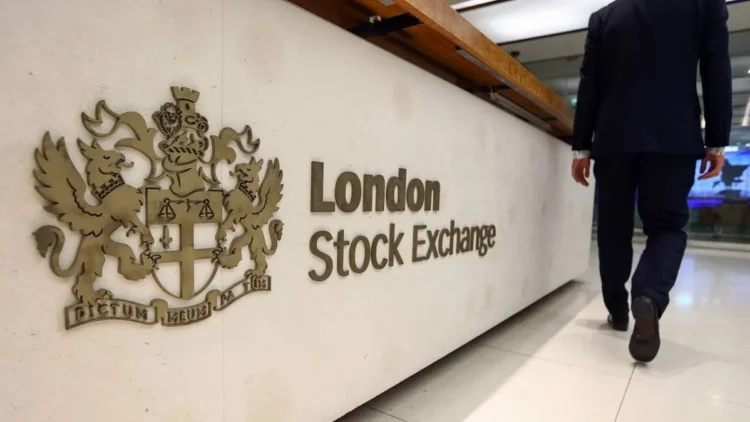By Gabriel Princewill-
A sudden trading incident at the London Stock Exchange (LSE) has affected financial markets, leaving all but the most liquid issues suspended, in a rare and unsettling event that has raised questions about the robustness of modern trading systems.
The turmoil unfolded on a day when the LSE was set to release its third-quarter performance report, an unfortunate juxtaposition that put the exchange’s operational resilience under scrutiny.
The London Stock Exchange declared that all stocks, except those listed in the FTSE 100 large-cap index, FTSE 250 mid-cap index, or the international order book, were brought to an abrupt standstill.
The group said it was investigating “an incident” in which investors could only trade shares in the FTSE 100 and 250 indices and global depositary receipts- a certificate representing shares in overseas companies.
It originally said it was investigating the incident at 3:26pm, about an hour before the UK market closed, and said orders in affected stocks had expired.
The glitch forced an early end to trading in dozens of names, including online retailer Asos, polling company YouGov and drinks maker Fever-Tree. Trading in shares in companies in the FTSE Aim index, which tracks smaller companies, was also halted, while the normal end-of-day auction in affected
The incident, which caught traders and investors off guard, was first detected at 3:26 p.m. local time, occurring perilously close to the end of the trading day in the United Kingdom.
Consequently, the affected securities were denied the customary closing auction, further complicating matters for market participants looking to buy, sell, or assess their holdings.
Significance for the Stock Market
The trading incident at the London Stock Exchange has highlighted the significant role that the stock market plays in the global financial landscape and the potential consequences of unexpected disruptions.
The London Stock Exchange is one of the world’s most renowned financial institutions, serving as a hub for a wide range of investors, from institutional giants to retail traders.
The exchange’s outage is a poignant reminder that even the most sophisticated trading systems are not immune to unforeseen technical glitches.
As a pivotal financial center, the LSE influences global investment decisions, and its stability is of paramount importance.
The incident has brought the importance of resilient and dependable trading systems into sharp focus.
Impact on Market Participants
The suspension of trading has directly affected an array of market participants, from professional investors to retail traders.
Those with positions in the affected stocks found themselves temporarily unable to execute trades or evaluate their holdings.
Naz Rani, a trader and investor who is also deeply immersed in education research, told The Eye Of Media.Com: ‘The sudden halt was disruptive for institutional investors, whose portfolios can be extensive and diversified, disrupting their trading strategies and potentially leading to missed opportunities or losses.
‘Retail traders, on the other hand, may have felt the brunt of the incident, as many rely on timely decision-making to respond to market movements.
‘The inability to trade the affected securities during the final hours of the trading session could have caused substantial frustration and uncertainty for those trying to optimize their positions.
Trading incidents like the one witnessed at the LSE are relatively rare, but their consequences can be substantial.
The last time the trading venue faced a major trading outage in 2021 when its Eikon terminals, data platform, and FXall currency trading platform were down for five hours, knocking out some of its most widely-used services.
Modern financial markets depend on complex and interconnected technology systems, and while these systems are designed to be robust and redundant, occasional technical issues can still arise.
Regulators and exchanges themselves invest heavily in maintaining the integrity and stability of markets, conducting stress tests and implementing safeguards to prevent such incidents.
However, the complexity and speed of modern trading mean that unforeseen problems can occasionally disrupt operations.
Despite the disruptions and occasional hiccups, the stock market remains a crucial pillar of the global economy. It offers a platform for companies to raise capital, providing opportunities for investors to grow their wealth.
The stock market also serves as a vital barometer for economic health, reflecting the confidence of investors in the financial future.




